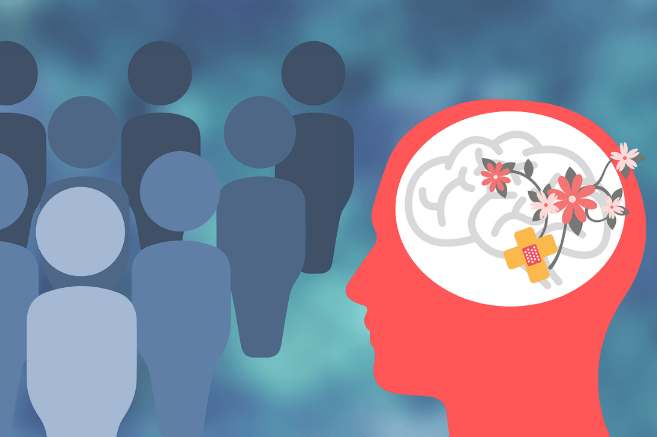Forbes says, “During severe personal adversity, 52% of people have post-traumatic growth, which means they do not merely “bounce back” but thrive & grow because of adversity.”
Due to the business world’s dynamic nature, change & uncertainty are consistent. As organizations, we frequently find ourselves navigating through a series of people challenges. Mergers, acquisitions, market shifts & global crises are just a few examples that demand strategic adaptability & psychological resilience. In this blog, we delve into the importance of psychological resilience in organizations facing change & uncertainty, exploring how it can be cultivated & leveraged to foster long-term success.
The Power of Psychological Resilience
Psychological resilience is the ability to bounce back from tough times, withstand challenges & come out even stronger. It is the difference between thriving amidst uncertainty & surrendering to it.
Next, we will present two examples where psychological resilience served as an asset during pivotal moments in the companies’ transformations.
I. Mergers & Acquisitions (M&A)
Mergers & acquisitions are transformative events in the life of any organization. The process is filled with uncertainties – from cultural clashes to workforce integration. Let’s look at a few examples:
- Nokia & Alcatel-Lucent: When Nokia acquired Alcatel-Lucent, it marked a significant shift in the telecommunications industry. Both organizations had to navigate complex changes in strategy, structure & culture.
- AT&T & Time Warner: The merger between AT&T & Time Warner faced regulatory challenges & market uncertainties. Resilience was a need for both organizations in the face of these challenges.
II. Global Crises
Global crises, like the COVID-19 pandemic, can disrupt organizations in unexpected ways. Resilience here is not just about survival but more so about innovation & adaptability:
- Microsoft: Microsoft managed to recognize the stress & challenges that employees faced during the pandemic. They encouraged a culture of flexibility, acknowledging that remote work could blur boundaries between professional & personal life.
- Google: Google adopted a holistic approach to employee well-being during the pandemic. They provided additional paid leave to employees dealing with personal challenges related to COVID-19. Google also offered virtual mental health support, including therapy sessions, to help employees navigate the emotional impact of the crisis.
Best practices from the industry to building Psychological Resilience
Market shifts are constant in the business world. Technological advancements, changing consumer preferences & emerging competitors demand organizational & psychological resilience:
-
Nokia:
- Leadership Training: Nokia invested in leadership training programs that equipped managers with the skills to provide emotional support to their teams. This helped create a supportive work environment & allowed managers to better understand & address their team members’ needs.
- Cross-Functional Teams: During market shifts, Nokia formed cross-functional teams that included employees from various departments. This not only encouraged collaboration but also provided employees with a broader perspective on the company’s response to market challenges, reducing the feeling of isolation.
- Flexible Work Arrangements: Nokia introduced flexible work arrangements that allowed employees to choose their work hours & locations. This flexibility empowered employees to balance work & personal life, reduce stress & enhance overall well-being.
-
Adobe:
- Learning & Development Grants: Adobe offered learning & development grants to employees during market shifts. This encouraged employees to explore new skills or interests, fostering a sense of growth & resilience.
- Mental Health Days: Adobe implemented a policy that allowed employees to take additional paid mental health days. This acknowledgment of the importance of mental well-being conveyed support & care for employees’ psychological resilience.
- Gratitude Initiatives: Adobe launched initiatives that encouraged employees to express gratitude & appreciation for their colleagues. This created a positive work culture & strengthened interpersonal relationships, contributing to overall resilience.
-
Amazon:
- Remote Work Flexibility: Amazon expanded its remote work policies during market shifts, giving employees more control over their work environments. This flexibility helped employees adapt to new circumstances & reduce work-related stress.
- Recognition Programs: Amazon introduced recognition programs that allowed employees to nominate their peers for outstanding contributions. Recognizing resilience & dedication boosted employee morale & engagement.
In conclusion, psychological resilience is not a luxury in today’s challenging times, but a sheer necessity. The ability to fall, dust yourself, get back on your feet again, overcome tough times, adapt to change & emerge stronger is what sets successful organizations apart.
Need guidance to help your organization build a resilient future? Reach out to us today!




